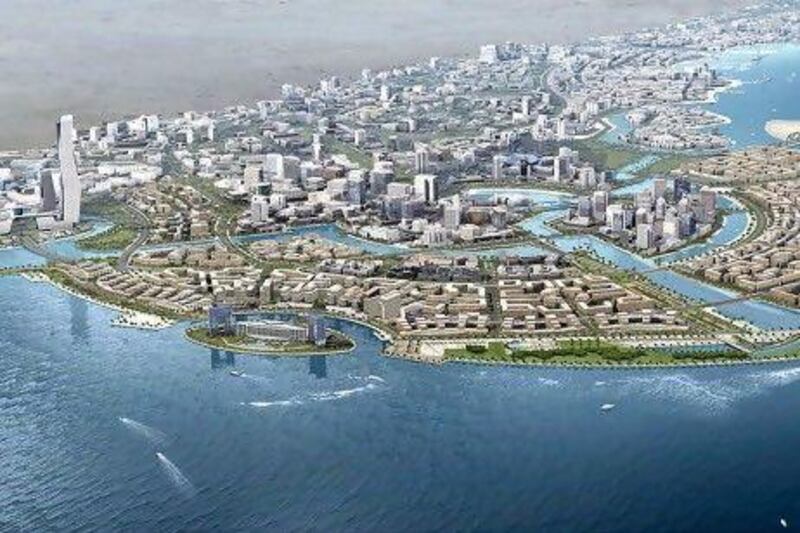A 5 billion riyal (Dh4.89bn) loan from the Saudi government is expected to jump-start construction of the King Abdullah Economic City, a 168-square-kilometre development on the Red Sea north of Jeddah.
Kingdom Come: Learn more about the Saudi super scheme
Last Updated: May 29, 2011
Massive Saudi property development switches focus Saudi Arabia's massive King Abdullah Economic City project is switching focus to low and middle-income housing in attempt to improve poor demand. Read article
Saudi Arabia housing boom waiting to be unleashed The adoption of long-delayed new mortgage laws in Saudi Arabia may spark an unprecedented housing boom. Read article
Saudi project to welcome home buyers from abroad The Emaar Properties project King Abdullah Economic City in Saudi Arabia is expected to be the kingdom's first to welcome foreign buyers without restriction, as it seeks to bring in more foreign investment and ease its dependence on oil. Read article
[ More Business ]
Emaar, The Economic City (Emaar EC), a publicly listed joint venture between the Dubai developer Emaar Properties and Saudi investors, is building the project, the largest private-sector development in the kingdom.
The plans include a new port, an 800-hectare industrial sector, office towers, resorts and homes for 2 million people.
The loan should boost development activity in the city after a significant slowdown last year, Deutsche Bank said in a note to clients.
Emaar EC's cash reserves shrank to 339 million riyals last year from 2.2bn riyals in 2008, Deutsche Bank said.
The cash will help the developer finish basic infrastructure for the project and pay contractors, said John Harris, the co-head of the Saudi Arabia office of the property services company Jones Lang LaSalle.
"I think this is definitely positive news for the development," Mr Harris said.
The Saudi ministry of finance is giving Emaar EC 10 years to repay the loan, including a three-year grace period for payments. Emaar EC is using more than 2,400ha of land as collateral.
"The company plans to repay the loan from the expected returns from the project and foresees a positive impact on the project and the financial statement of the company from this loan," Emaar EC said.
No other details were provided and officials of King Abdullah Economic City could not be reached for comment.
Although good news for the development, the loan provides evidence that the company was having trouble raising funds through private sources, said John Sfakianakis, the chief economist at Banque Saudi Fransi
"It remains to be seen whether this will incentivise the private sector to get involved," Mr Sfakianakis said. "Without the state's involvement, the private sector might not have had the appetite [to finance the project]."
King Abdullah Economic City is the first freehold city developed in the kingdom and is seen as an important step in diversifying the economy away from oil.
Work on the industrial portion of the project has moved more rapidly than in other areas, analysts say. Dredging has started on the port, which is designed to handle the world's largest ships, and the facility should be ready to handle traffic by 2013, Emaar EC executives said this month.
Several international companies have committed to building facilities in the industrial zone, including the pharmaceutical giant Sanofi-Aventis and Emal International - the joint venture of Abu Dhabi's Mubadala Development and Dubai Aluminium - which is planning an aluminium smelter complex.
But progress has been slower than expected. And the Saudi government has yet to issue specific guidelines for licensing, visas and operations for foreign companies in the zone, Mr Harris said.
"They need to get more clarity for the regulatory environment they are proposing," he said.
As a location for industrial activity, the site is competitive, but its office space is less attractive. It will have to build affordable housing and complete its transportation infrastructure if it is going to attract more international companies, Mr Harris said.
"There is a shortage of good industrial districts in Jeddah, but there is no shortage of good office space," he said. "Making an argument for moving an hour north of Jeddah is harder, especially if there is nowhere to live."





